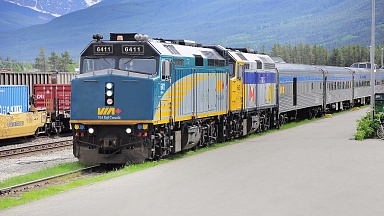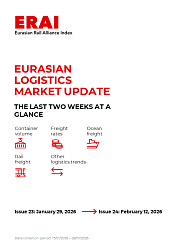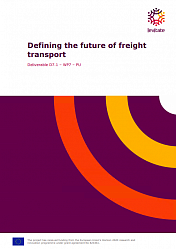The development of a nation’s economy directly depends on the effective operation of its transport and logistics industries. These industries connect all economic entities within a country and ensure interaction with international partners. Logistics processes, in turn, are one of the essential components in the creation of value within businesses of any industry, regardless of their specific affiliation.
Therefore, the need for advanced digital technologies within transport and logistics has increased from 89.4 billion rubles in 2020 to 626.6 billion rubles by 2030. AI and neurotechnology will account for 35% of this total, with an annual increase of 40%. Additionally, in the overall context of industries, transport and logistics firms can become one of the leading consumers of AI-driven solutions by 2030.
According to the findings of 2023, approximately 28.8% of transport companies use AI-based technologies. Furthermore, 51.2% only use domestic AI solutions. Additionally, 29.7% of industry companies plan to implement AI within the next 3 years. Of these, 21.5% have already defined a strategy or road map for AI development.
Based on the results, 20.8% of AI-implementing companies assess the economic impact of AI as either significant or multiple. Additionally, 86% have the necessary funding for an AI development plan.
In recent years, the development of AI has been strongly driven by technological breakthroughs, increased data volumes, improved methods of working with data, faster internet speeds and better internet coverage, the growth of e-commerce, and the introduction of regulatory frameworks for AI at the legislative level, as well as stricter environmental standards.
Some key trends in the development of transport and logistics include:
— Autonomous passenger transportation
— Autonomous cargo transportation
— Delivery by robots and drones
— Unmanned, specialized transportation
— Use of AI to interact with customers
— Integration of vehicles and infrastructure through dynamic information exchanges
— Smart transportation hubs, such as smart airports, ports, railways, and stations
— AI-driven predictive analytics in transportation and logistics
— A digital supply chain model
According to the «Number of organizations assessing the impact of digital technologies» survey conducted by Rosstat in 2022, companies in the «Transportation and Storage» industry noted the positive effects of AI development on improving internal processes, labor productivity, and financial performance. They also emphasized the effectiveness of their interactions with contractors.
A significant number of logistics, railway transport, and air transport companies emphasized the efficiency of their internal processes and productivity improvements due to AI developments. In freight transportation, an equal number of respondents noted the greatest impact on financial results and internal processes as well as interactions with suppliers. In air transportation, respondents emphasized the impact on product or service quality.




